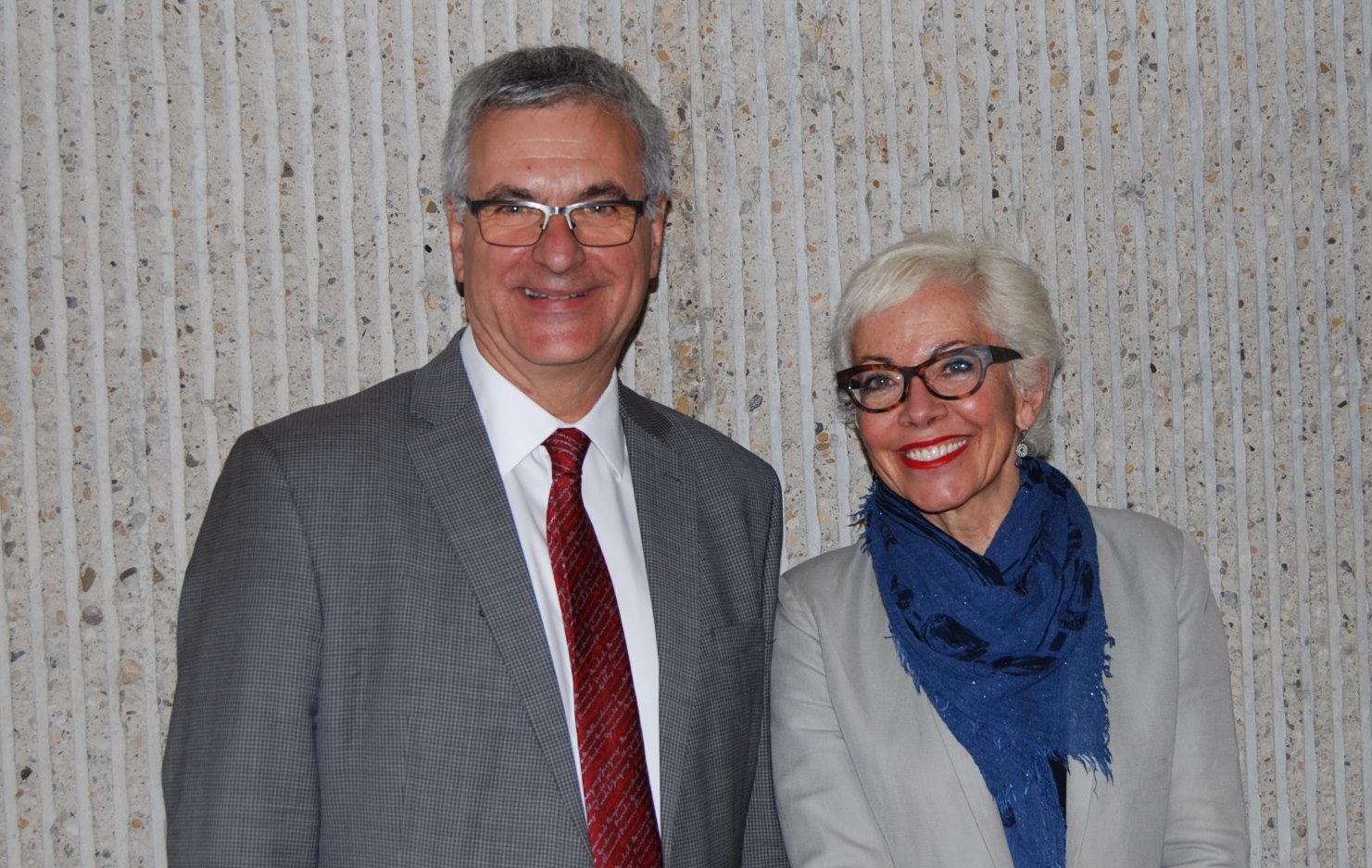
Québec House Leader and Minister for Canadian Relations and Canadian Francophonie Jean-Marc Fournier (left) with Centre for Constitutional Studies Executive Director Patricia Paradis
On October 13, 2017 Québec House Leader and Minister for Canadian Relations and Canadian Francophonie Jean-Marc Fournier made a short but impassioned appearance at the University of Alberta Faculty of Law to espouse a new vision for Canadian federalism.
In a talk organized by the Centre for Constitutional Studies, the veteran politician, who briefly served as interim leader of the Québec Liberal Party following the resignation of ousted Premier Jean Charest, visited the Law Centre as part of a whirlwind tour of Canadian universities both within and outside of Québec.
The centerpiece of his talk was his government's new policy manifesto entitled Québec Affirmation and Canadian Relations, a document that defines and asserts Québec's plural and inclusive national identity within the Canadian context.
"I am a Quebecer-and that's my way of being Canadian," said Fournier.
"This new way of looking at Québec's place within Canada is a way of being more 'present' in the political sphere and in civil society generally."
In keeping with this paradigm shift under the Liberal government of Philippe Couillard, Fournier's own ministry has recently undergone a name change from "Intergovernmental Relations" to "Canadian Relations." The reason for this change, he explained, was to expand the discourse around federalism beyond the governmental realm to society at large.
This cloistering of the conversation around Canadian unity, he asserted, was a source of some of the problems of the past.
"During the Meech Lake and Charlottetown processes, most people had no idea what was really going on," he said.
"People knew their premier was busy in negotiations, but otherwise they were completely in the dark. If we really believe that we should be together rather than apart, it's up to us as Canadians to make that proposition clear and make our voices heard. That means people who aren't politicians need to get involved."
Echoing sentiments voiced by acclaimed journalist Chantal Hébert in her March 2017 Centre for Constitutional Studies talk, Fournier asserted that Québec is a profoundly different place than it was a generation ago when it nearly voted to separate from Canada, and expressed optimism for the province's continued future within Canada.
"Today, a full 75 per cent of Quebecers feel an allegiance to both Québec and Canada," he said, noting that the rate reporting allegiance to Canada is highest among youth.
The Centre for Constitutional Studies' speaker series continues on Wednesday, October 18 with Righting Wrongs: Remedies for Charter of Rights Violations, presented by UAlberta Professor Barbara Billingsley.